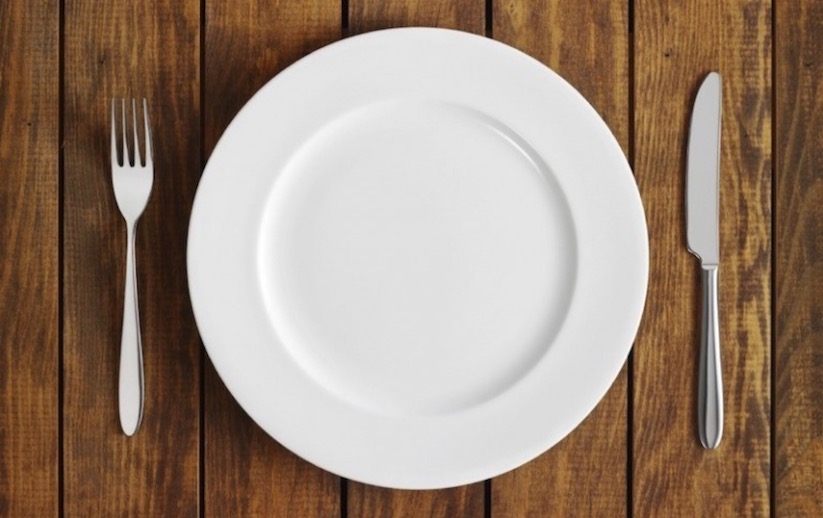I was recently asked my opinion on drinking diet soft drinks. The person specifically wanted to know if there’s anything wrong with enjoying a diet soda in the morning for a quick caffeine boost. Initially, this question was somewhat difficult for me to answer. After all, who am I to say whether a person’s dietary choices are ‘right’ or ‘wrong’?
But, as requested, I did offer up my opinion on this issue.
And, my answer is that it really depends on your personal health and fitness goals.
If you’re focused solely on losing weight, all your energies and efforts are likely centered on burning more calories than you eat. So, in this situation, drinking a diet soda may be an ideal choice, though not necessarily the best one. Now, on the flip side, if you’re trying to live a healthier lifestyle, drinking a diet soda is not at all ideal.
Why?
Well, simply put, because it’s not real food!
In fact, it’s not even remotely similar to a real food.
Related Article: A Simple Guide to Eating Sensibly
As with all diet soft drinks, diet soda is comprised of a synthetic cocktail of artificial colors, flavors, sweeteners, and preservatives.
That’s it!
No health-promoting macronutrients or micronutrients.
Nothing at all!
Unfortunately, and unbeknownst to many, drinking diet soft drinks can actually increase cravings for sugar. This is primarily because the human brain responds to tastes of sweetness with signals to eat more—Regardless of whether the taste comes from real sugar or artificial sweeteners.
Adding insult to injury, when the sense of sweetness comes without calories, the cravings for sugar are greatly magnified. This isn’t much of an issue with sporadic intake of artificial sweeteners. Problems arise when consuming them becomes a regular practice, as is the case with folks who consume diet soft drinks day in and day out.
Interestingly enough, the person who posed this question to me is known to complement her morning diet soda with a fruit-dense smoothie and a banana. Even in the absence of sugar from the soda, that’s a lot of sugar in a single sitting. Over 30 grams to be exact!
Related Article: Dietary Sugar: The Good, The Bad and The Unnecessary
And, this is her preferred method of replenishing her body after a workout. It’s also a sure way to sabotage her efforts.
But, believe it or not, this practice is not uncommon.
For many these days, it’s totally normal and perfectly acceptable to consume a breakfast pumped full of sugar. Fruits, fruit-dense smoothies and other common breakfast foods generally perceived as “healthy” tend to be exceptionally high in sugar.
Complicating things is the general perception that zero-calorie and low-calorie foods are healthier choices. Whether it’s diet soft drinks, baked chips, low-fat ice cream or fat-free salad dressings, devoted calorie counters often show a preference for reduced-calorie foods.
Related Article: Seven Food Labeling Tactics That Are Making People Sick
This is an inherent flaw of calorie counting, especially when it comes to weight loss.
Nevertheless, I’ll be the first to admit that successful weight loss can only be achieved by creating calorie deficits.
The logic here is straightforward.
There are 3,500 calories in a pound of fat. So, if you want to lose weight you’ll have to create a 3,500-calorie deficit for each pound of fat you want to lose. For instance, a daily deficit of 500 calories will lead to a weight loss of one pound a week. That’s four pounds a month.
Now, while losing weight is primarily a matter of creating deficits, you can successfully manage your weight and substantially improve your health by simply eating a wide range of nutritious foods.
Related Article: 3 Highly Effective Ways to Lose Weight Without Counting Calories
There are, in fact, countless nutritious foods that carry relatively high calorie counts, such as whole grains, legumes, and healthy fats likes avocado, nuts and seeds. These foods also collectively contain all-natural chemicals that can greatly boost your weight loss efforts by revving up your metabolism, optimizing digestion, and reducing fat absorption and storage.
These actions make it much easier to eat less and ultimately lose more weight.
Despite the overall value of consuming such foods, people obsessing over calories generally avoid them, thereby inadvertently starving themselves of health-promoting nutrients. Since the body craves nutrients, withholding them tends to trigger overeating in ways that promote unnecessary weight gain.
At the end of the day, whether your goals are centered on losing weight or improving your health, it’s important to eat sensibly by keeping tabs on both your calorie and nutrient intake. Exercising portion control is also critical, as too much of a good thing can surely lead to weight gain and other health problems. This holds especially true for sugar-rich “healthy” foods like fruit.
Related Article: The Best Time to Eat Fruit
As for the question of whether drinking a caffeinated diet soda in the morning is right or wrong?
Well, for a caffeine boost, one would be better served by drinking a cup of high-quality coffee or tea. In addition to the caffeine naturally housed in these beverages, they’re also rich in health-promoting micronutrients and offer powerful appetite suppressant effects.
Related Article: Why You Should Drink at Least One Cup of Coffee Every Day







